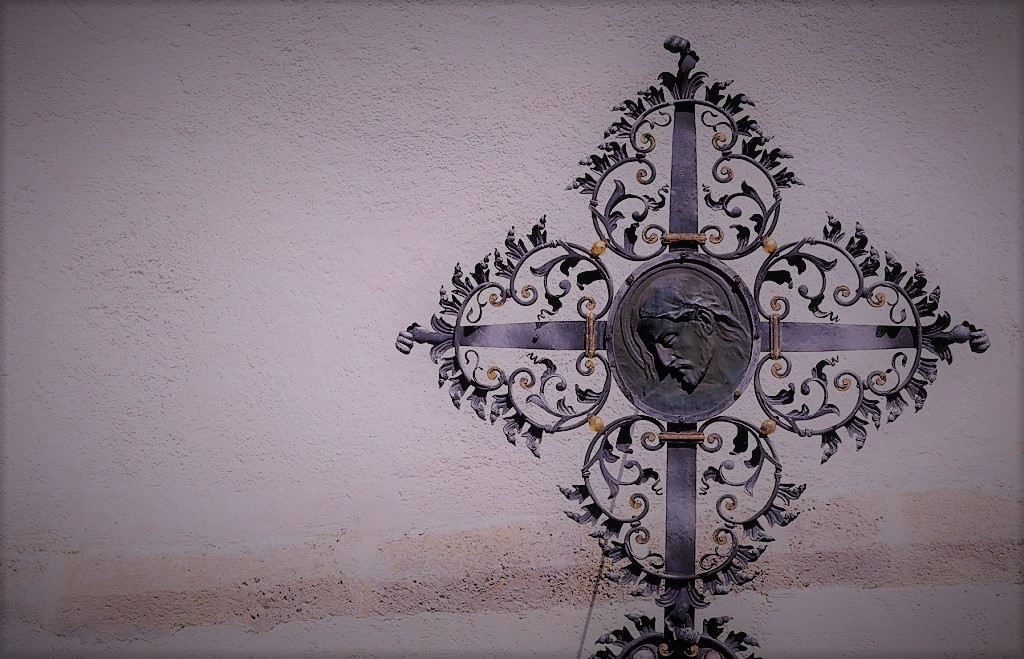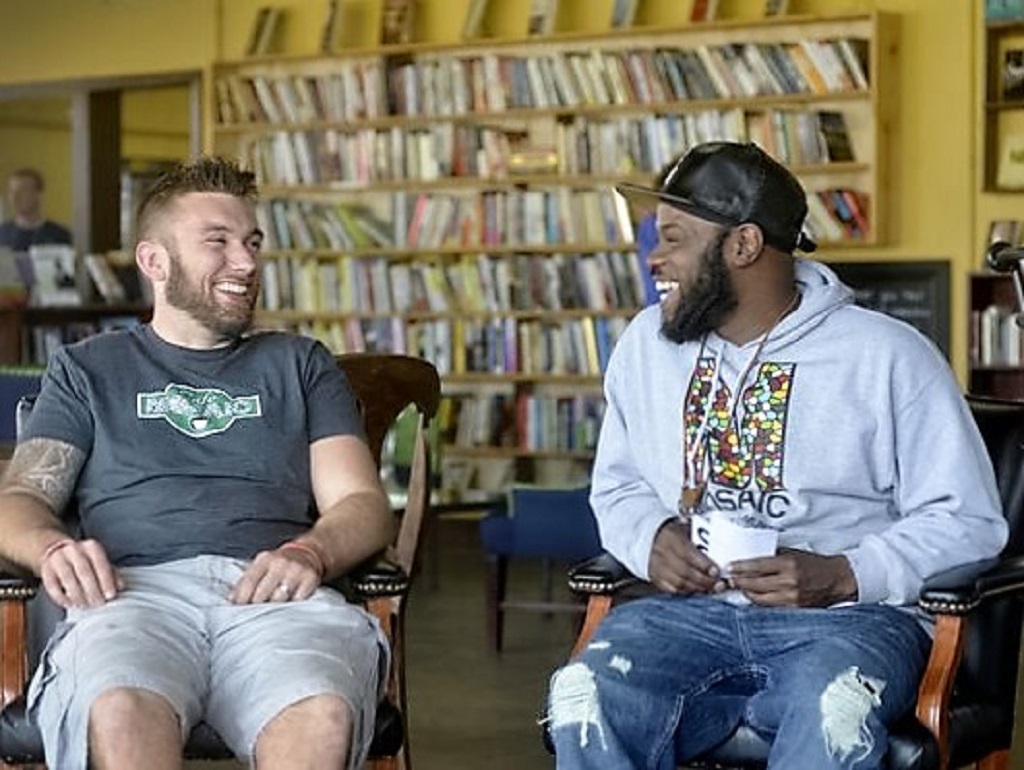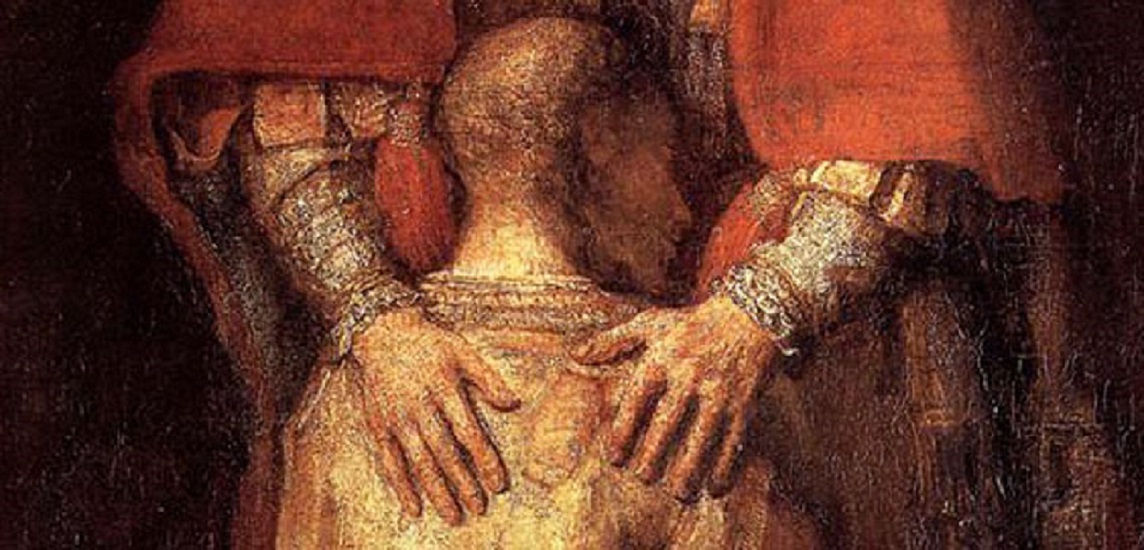Today is the last day of Lent; tomorrow, we begin the Triduum – Holy Thursday, Good Friday, Holy Saturday. These are the holiest days of the year for Catholics, as we enter into Christ’s last days, the institution of the Eucharist, His example of washing the feet of the Apostles, His Passion and Death. They are somber days, quiet, contemplative. They are days of mystery and wonder, prayer and longing, peace and unrest.
Those themes (mystery, wonder, prayer, longing, peace, unrest) are outlined for us in the Mass readings for today. In the first reading, Isaiah seems to be celebrating the gifts he’s been given in his prophetic office: a well-trained tongue, ears to hear God. But this passage is also about betrayal: those who oppose his words beat him, spit on him, pull hairs out of this head. Yet, in spite of this, Isaiah remains faithful and grateful.
The psalmist cries out, “Lord, in your great love, answer me!” He is assured that God loves him and will answer him. He praises God in song, glorifies Him in thanksgiving. Yet again, we see betrayal: his own brothers have cast him out. They make his food inedible and give him vinegar to drink. Like Isaiah, the psalmist remains stalwart in his faith: “You who see God, may your hearts revive!:
Finally, and saddest of all, is the Gospel. Judas has put into motion his betrayal of Jesus. Jesus is well-aware of this, yet He includes his betrayer to dine with the group that night. He blesses the bread and wine – pronouncing them now His own Body and Blood – and Judas partakes. The most stunning sinner in history still has a place at the table.
It is hard to imagine the magnitude of pain Jesus felt by this betrayal. Here was a man in whom Jesus had seen great potential, a man fit for building the Kingdom of God. Jesus walked and talked with this man, ate with him, laughed with him, taught him. Judas was a brother in faith, until … he wasn’t.
Have you ever been betrayed? Most of us can relate, in at least a small way. Some of us have known the pain of infidelity in marriage, or learning that a beloved child has been stealing from us to feed a drug habit. Maybe a dear friend destroyed a confidence and hurt our reputation. Some of us remember being befriended by someone in school, but the only intention of that person was to get close enough so as to make us look foolish with their friends standing by, laughing at our expense.
Being human means you’ll get hurt. Our emotions are a gift from God, just like everything else about us, save sin. We say and do hurtful things. We get drawn into gossip. We harbor resentments and lash out. But for all our experience, we still do not know the depth of Christ’s pain.
It was not just the betrayal of Judas, however great a sin that was. It was the denial of Peter. It was the fact that all of His Apostles (except for John) fled when He needed them the most. It was the humiliation of being stripped, and His Father mocked. It was the weight of the Cross – a burden so large no man could lift it. The appalling weight of the Cross: made oppressive by our sins.
It is easy, sitting in our clean churches, our tidy homes, our coffee shop, to judge Judas. Yet, do we not betray Christ every day? We sin. We reject the life God has given us, in essence saying, “I know this is wrong, but I want it. I choose this action over the life God offers.” It is why, on Palm Sunday, it is so easy for us to cry out both “Hosanna!” and “Crucify Him!” Theologian Romano Guardini:
And yet, aren’t there many days in our lives on which we sell him, against our best knowledge, against our most sacred feeling, in spite of duty and love, for some vanity, or sensuality, or profit, or security, or some private hatred or vengeance? Are these more than thirty pieces of silver? We have little cause to speak of “the traitor” with indignation or as someone far away and long ago. Judas himself unmasks us. We understand his Christian significance in the measure that we understand him from our own negative possibilities, and we should beg God not to let the treachery into which we constantly fall become fixed within us.
We cannot save ourselves from betrayal. Our only hope is Christ. Over the next few days, our most fervent prayer should be one of contrition for our sins and for the whole world.
Today’s Mass begins with the priest praying on our behalf: “O God, who willed your Son to submit for our sake to the yoke of the Cross, so that you might drive from us the power of the enemy, grant us, your servants, to attain the grace of the resurrection.” May our Holy Week begin and end with this prayer, so that we may know the mystery, wonder, prayer, longing, peace, unrest of today’s readings, and thus enter fully into the joy of Easter morning!
 Elise Hilton is an author, blogger and speaker. Her role at Diocesan Publications is Editor & Writer with the Marketing Team. She has worked in parish faith formation and Catholic education for over 30 years. A passionate student of theology, Elise enjoys sharing her thoughts on parish communication, the role of social media in the Church, Franciscan spirituality and Catholic parenting. To enquire about booking her as a speaker, please contact her at ehilton@diocesan.com.
Elise Hilton is an author, blogger and speaker. Her role at Diocesan Publications is Editor & Writer with the Marketing Team. She has worked in parish faith formation and Catholic education for over 30 years. A passionate student of theology, Elise enjoys sharing her thoughts on parish communication, the role of social media in the Church, Franciscan spirituality and Catholic parenting. To enquire about booking her as a speaker, please contact her at ehilton@diocesan.com.


 John Graveline, MTS, is a husband and father of three small children. He has worked for almost twenty-five years as a catechist and ministry coordinator specializing in the evangelization of young adults, adults, and families. He is currently on the pastoral staff of
John Graveline, MTS, is a husband and father of three small children. He has worked for almost twenty-five years as a catechist and ministry coordinator specializing in the evangelization of young adults, adults, and families. He is currently on the pastoral staff of 
 Allison Gingras, founder
Allison Gingras, founder 






